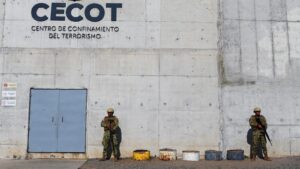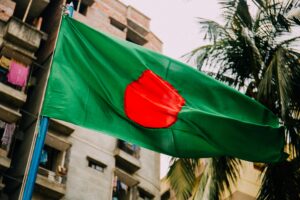In 1989, during the Guatemalan Civil War, four courageous human rights defenders were arbitrarily detained and disappeared by the Guatemalan Army because of their work to liberate Indigenous peoples forcibly conscripted into military service. The whereabouts of Agapito Pérez Lucas, Nicolás Mateo, Macario Pú Chivalán, and Luis Ruiz Luis remain unknown, causing tremendous suffering for their families who are still seeking justice 35 years later. During a hearing before the Inter-American Court of Human Rights (IACtHR) in October 2023, Pedro Mateo, son of Nicolás Mateo, testified to the trauma the disappearance of his father and the subsequent lack of information about his whereabouts have caused him and his family.
Enforced disappearances, recognized under international law as a crime against humanity, are a state-sanctioned weapon employed to punish opposition, silence human rights defenders, limit freedom of expression, and create a culture of fear. Refusal to provide information about the whereabouts of those disappeared coupled with denial of access to a fair trial can lead to other grievous human rights abuses such as torture and extrajudicial killings. The incommunicado status of those disappeared also causes intense psychological distress for families who are left to search for their loved ones in vain.
On this day, it is important to remember the victims and the countless relatives still seeking information about their loved ones, hoping for justice and answers. In the case of Agapito Pérez Lucas, et. al. v. Guatemala, justice is being sought before the Inter-American Court of Human Rights (IACtHR). RFK Human Rights and Consejo de Comunidades Étnicas Runujel Junam (CERJ), the human rights group which Pérez Lucas and the other human rights defenders were members of, are representing the families of the victims.
The IACtHR, founded in 1979, reviews cases of heinous human rights abuses referred to them by the Inter-American Commission on Human Rights when all other attempts at remediation have failed. In this case, the Supreme Court of Guatemala demonstrated the inability of the Guatemalan justice system to adequately investigate and prosecute the human rights abuses when they ruled that a writ of habeas corpus was not justified. The Guatemalan authorities never disclosed the defenders’ whereabouts nor held any officer accountable for their actions.
The IACtHR, which is now hearing the case, has the power to issue a binding judgment establishing Guatemala’s international responsibility and duty to comply with reparations for the victims, a ruling which would finally bring justice and resolution to this case and put pressure on the Guatemalan government to abide by international human rights law.
Enforced disappearances happen around the globe and can escalate during times of conflict and political instability. The UN Working Group on Enforced or Involuntary Disappearances, for example, recently noted an alarming increase in enforced disappearances in Venezuela leading up to the July 2024 presidential election. This attempt to silence opposition and limit the people’s right to freedom of expression is a continuation of a pattern of human rights abuses noted by RFK Human Rights and Foro Penal in a 2020 report which analyzed over 700 cases of enforced disappearances in Venezuela in 2018 and 2019. The culture of impunity surrounding these cases have contributed to the systemic use of enforced disappearances as a deterrent to those who would speak out against the regime, violating a number of human rights, including the right to liberty and security and the right to freedom from torture.
On this International Day for the Victims of Enforced Disappearances, RFK Human Rights invites you to join us in remembering the victims of enforced disappearances and their families around the world. We stand in solidarity with them as we continue to seek justice and an end to impunity for this horrific crime.




